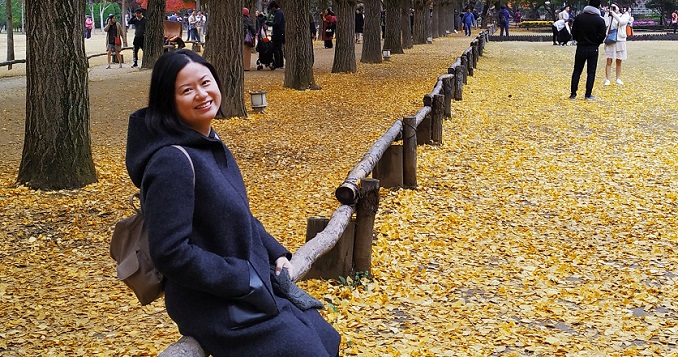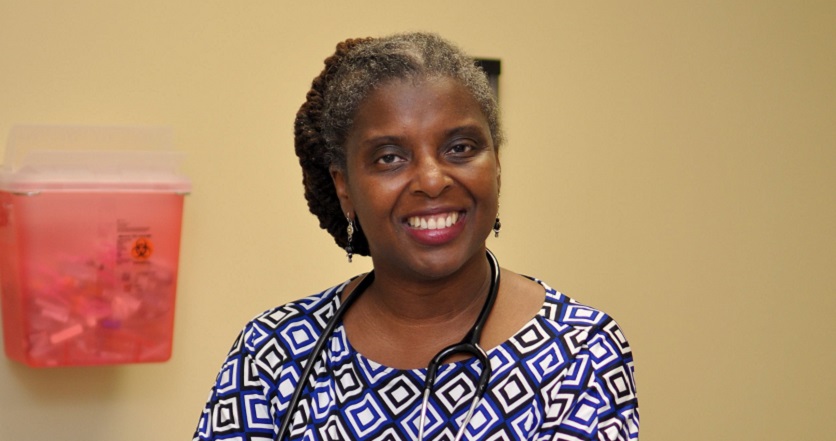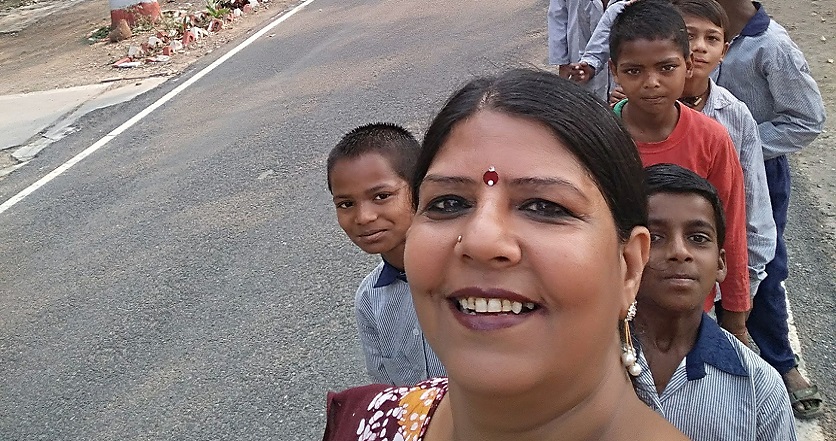Buddhism at Work

Battling with challenges in her workplace, Yen Gan learns that a change in her inner life is reflected in her environment.
I moved to Sydney, Australia, from Malaysia in July 2013. Since then, I have worked for five organizations. At every job, things often started off well but would eventually turn bad within a short period of time.
I started my first job in Australia in January 2014 but quit after six months due to the toxic culture. This was the beginning of an extremely challenging period in my life—I was jobless for an entire year.
Before moving to Sydney, I was an established financial journalist in Kuala Lumpur. Having a high-flying career was part of my identity, so when I was jobless for a prolonged period, my confidence plunged, I constantly felt that everyone saw me as a failure, and I worried that I was a huge burden to my husband.
We should recognize that our environment and the people around us are a reflection of our inner life.
Finally, I found a new job that was supposed to last for only six months. I worked extremely hard and often worked late because I wanted to do more to prove myself. My contract was extended for another six months, and I was eventually made a full-time employee. It was a huge victory, and I thought I had finally settled down. But things quickly turned sour when my department was restructured. It was the beginning of a dark period of bullying by the head of the department. My mental health suffered, and I resigned without a new job in sight.
Two months later, I took a massive pay cut to change my career path so that I could join another organization. By now, I believe you can see the pattern of my workplace karma and my deep-seated tendencies.
Again, at this new organization, everything went well for the first few months until my relationships with some colleagues became strained again. I was again overworked, and when I finally broke down, I had a huge fight with my manager.
A Change in Perspective
In hindsight, even though there were a lot of challenges during those difficult times, I was very much protected by my Buddhist practice. In June 2018, I was given the opportunity to lead my local Soka Gakkai group meetings. Every fortnight, I would face challenges at work that prompted me to feel like canceling the group meeting. But, somehow, I managed to put aside my own suffering and focus on preparing topics to share with the members who would be attending.
Nichiren Buddhism teaches us the “oneness of life and its environment.” Rather than blaming our suffering on other people and external circumstances, we should recognize that our environment and the people around us are a reflection of our inner life.
In all those previous jobs, I did not take responsibility for what happened to me. By constantly working overtime, I did not look after myself. When things went wrong, I blamed the people and the environment that I was in. I allowed other people to bully me.
As a passage in The Writings of Nichiren Daishonin states, “If the minds of living beings are impure, their land is also impure, but if their minds are pure, so is their land. There are not two lands, pure or impure in themselves. The difference lies solely in the good or evil of our minds.”
Because everything is interconnected, when we raise our life state through the practice of Nichiren Buddhism, our joy and wisdom will be manifested in our surroundings.
During my time supporting my local Soka Gakkai group, a recruiter contacted me and invited me to apply for a senior position.
At the job interview, the panel asked me why I wanted to be a manager. I told them that it was because I wanted to create a workplace culture that is based on trust, respect and transparency. I told them that I would lead the team with humanity, compassion, courage and integrity.
I got the job, and, at the time of writing, it has been 14 months since I started.
Applying the Principles
The new job is challenging. Work is tough. But what’s really different this time is that I have finally consciously applied Buddhism in my workplace.
In the first few months, I struggled to earn the respect and trust of the people who report to me directly. I was exhausted because I was unable to lead the team effectively.
One day, I decided to have heart-to-heart dialogues with each of them, inspired by the example of President Daisaku Ikeda as a proponent of dialogue. Instead of blaming them, I saw them as precious human beings—Buddhas—who deserve respect.
In those dialogues, I asked about their lives outside work. I asked what would make them happy and what would motivate them. I also shared with them my fears, my struggles and my hopes. I put aside my position as a manager and spoke with them as fellow human beings. By applying Buddhist wisdom rather than intellectual strategy, I was finally able to have meaningful connections with them. These connections help me see the best in each of my team members.
The challenges at work are never-ending, but I believe I have finally found the courage and wisdom to build meaningful relationships at work.
In October 2019, I found out at a leadership meeting that I had won the broader team’s Values Award. To my surprise, I learned that all my team members had nominated me for the award. They said I manage the team with care, respect and consideration, that I promote the values of trust and transparency and build a positive and productive culture.
The challenges at work are never-ending, but I believe I have finally found the courage and wisdom to build meaningful relationships at work. Applying Buddhism in the workplace means carrying yourself in a way that shows you are a practitioner of this wonderful Buddhism. It means you inspire other people to make positive change through your actions. It means genuinely seeing your colleagues as Buddhas and treating everyone with equal respect no matter how difficult it is to do so. This is why we do our human revolution—to make the world a better place.
Adapted from the August 2020 issue of Indigo, SGI-Australia







